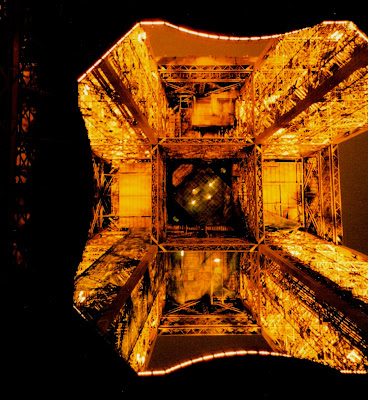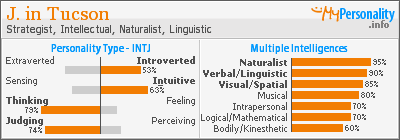Tomorrow I fly back to Seattle for a few days; my brother-in-law is getting married. My wife flew up today. Last night she was having a hard time packing--what to wear? what does it feel like to be chily? We've forgotten...(It's supposed to hit 100 degrees in Tucson today--unusually warm, even for here)
I get a bit nostalgic in September: the changing season, thinking back to past moves...
It was in this month when I first moved to Seattle eleven years ago...and then in September of the following year, I moved to Paris.
Those were heady days, even under grey skies, to be in one's early 20's, in such very different places, alone but not lonely...
The phrase 'decadal oscillation' comes to mind...Yes, the term has to do with specific climactic variations, but I like the sound of it. Ten years may be an arbitrary division of time, but it's how we categorize trends and epochs...Where will we be ten years from now?
So, September a decade ago. Paris in autumn. Leaves beginning to fall and the back-to-the-routine-traffic along the Seine. The gargoyles of Notre Dame looking over the Latin Quarter--domain of books and cheap eats for students, now that the summer tourists have all gone home:
It had been only a year and a half, then, since my father had died, and in some ways, as I got to know Paris, I felt I was chasing his echo from decades before. He had, before meeting my mother, lived in Europe for several years, and I remember how he described his surprise at the size of the Eiffel Tower when he first went to Paris. He said he'd fully intended to go up it, but when he drove by the base, and realized the scale of the thing...well, he reconsidered...
 It's strange, as a young boy, to first learn of your father's phobias. Heights and enclosed-spaces--evidently, not my father's favorite combination. And so up the Eiffel Tower he never went!
It's strange, as a young boy, to first learn of your father's phobias. Heights and enclosed-spaces--evidently, not my father's favorite combination. And so up the Eiffel Tower he never went!  Before he became ill and died, my father and I had begun having those conversations-over-coffee that make one finally realize, oh, here we are, face to face, adult to adult--still father and son, but no longer father and child...and as I would stop for a café-crème in one of Paris' innumerable cafés, I couldn't help but engage in internal soliloquies: what would I be saying to Dad right now, if he were here..
Before he became ill and died, my father and I had begun having those conversations-over-coffee that make one finally realize, oh, here we are, face to face, adult to adult--still father and son, but no longer father and child...and as I would stop for a café-crème in one of Paris' innumerable cafés, I couldn't help but engage in internal soliloquies: what would I be saying to Dad right now, if he were here.. All this remembering of the past...
It reminds me of a passage from some of the writings of Rilke, the great German poet (1875-1926) and some of his musings on what it means to think and write--anything, not just poetry--about the past:
...Ah, poems amount to so little when you write them too early in your life. You ought to wait and gather sense and sweetness for a whole lifetime, and a long one if possible, and then, at the very end, you might perhaps be able to write ten good lines.
For poems are not, as people think, simply emotions (one has emotions early enough)--they are experiences.
For the sake of a single poem, you must see many cities, many people and Things, you must understand animals, must feel how birds fly, and know the gesture which small flowers make when they open in the morning.
You must be able to think back to streets in unknown neighborhoods, to unexpected encounters, and to partings you had long seen coming; to days of childhood whose mystery is still unexplained, to parents whom you had to hurt when they brought in a joy and you didn't pick it up (it was a joy meant for somebody else--); to childhood illnesses that began so strangely with so many profound and difficult transformations, to days in quiet, restrained rooms and to mornings by the sea, to the sea itself, to seas, to nights of travel that rushed along high overhead and went flying with all the stars,--and it is still not enough to be able to think of all that.
You must have memories of many nights of love, each one different from all the others, memories of women screaming in labor, and of light, pale, sleeping girls who have just given birth and are closing again.
But you must also have been beside the dying, must have sat beside the dead in the room with the open window and the scattered noises.
And it is not yet enough to have memories. You must be able to forget them when they are many, and you must have the immense patience to wait until they return.
For the memories themselves are not important. Only when they have changed into our very blood, into glance and gesture, and are nameless, no longer to be distinguished from ourselves--only then can it happen that in some very rare hour the first word of a poem arises in their midst and goes forth from them.



1 comment:
Great pics! i really liked your post. Thank you for sharing it with me :) Hey I also found a new travel site that I think you will like, baraaza.com
Post a Comment